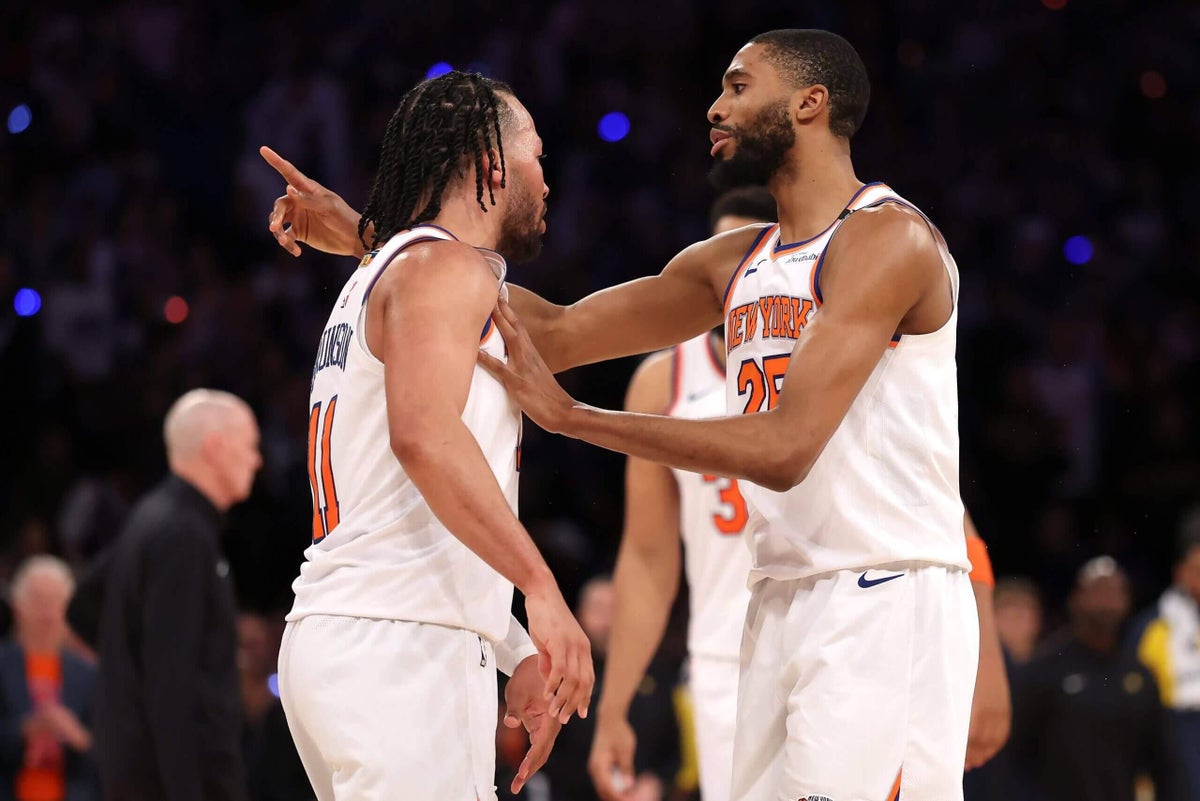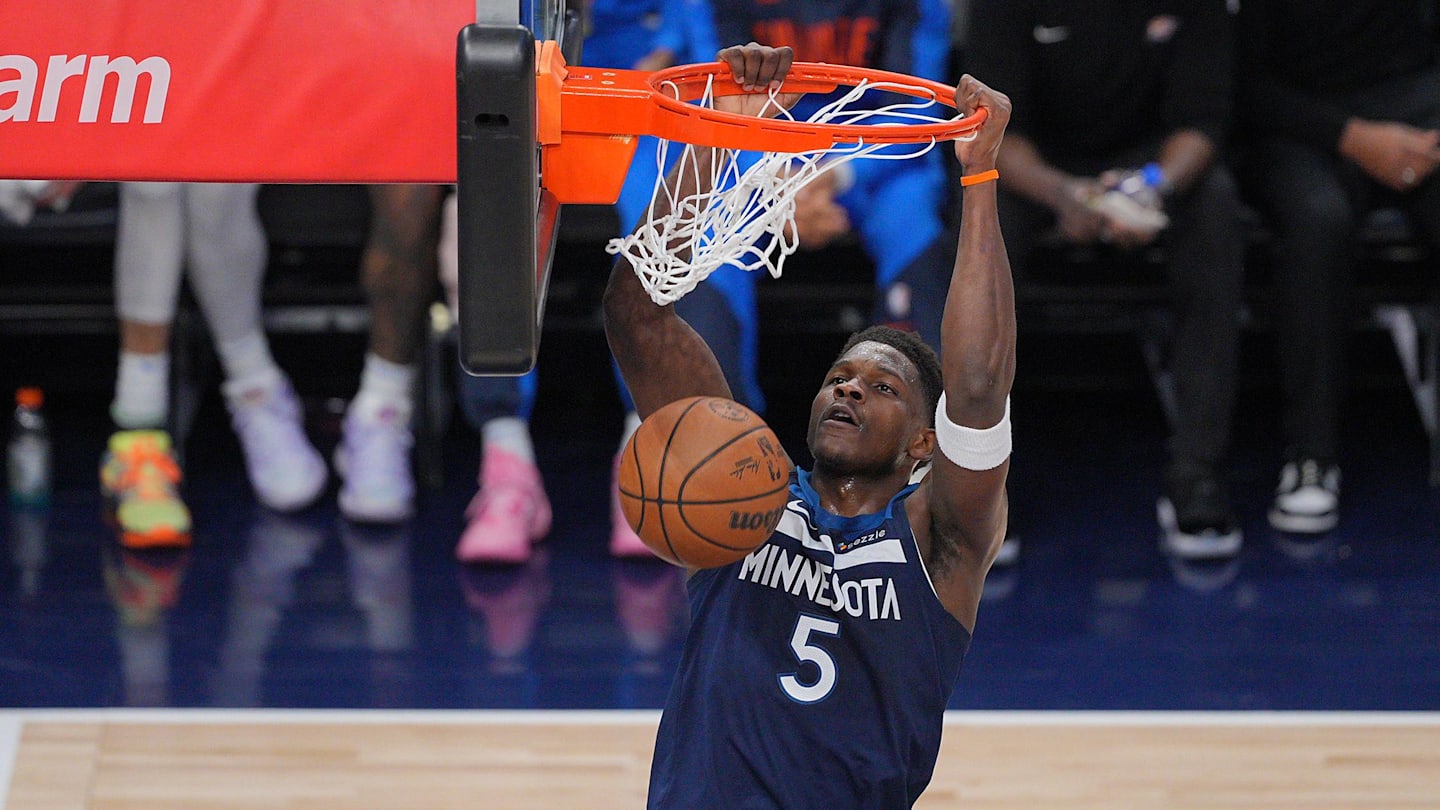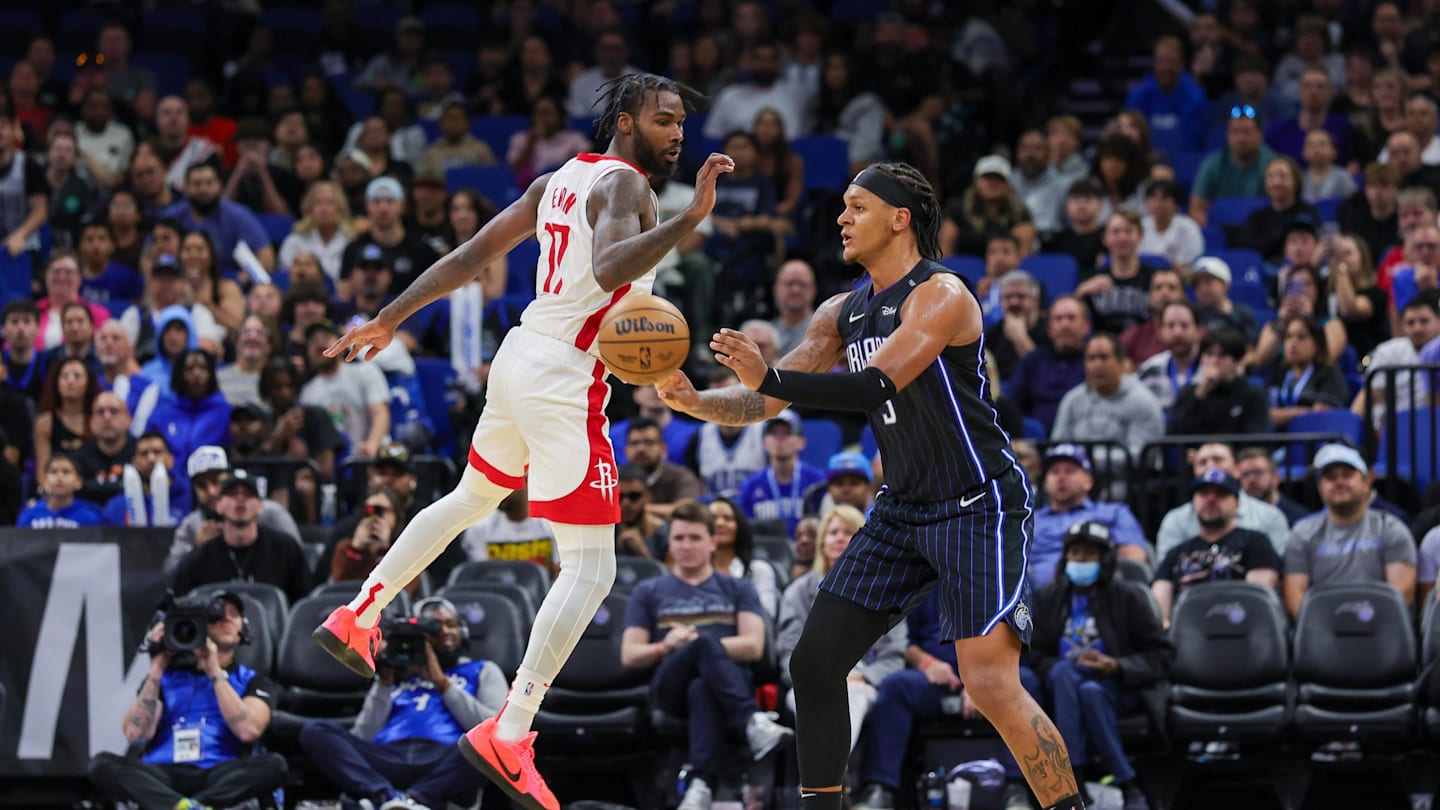NEW YORK — If basketball were played on paper, it would have made sense to pencil in the New York Knicks as world champions. Jalen Brunson. Karl-Anthony Towns. OG Anunoby. Mikal Bridges. Josh Hart. You’d be hard-pressed to find a collection of five starters who are more individually talented around the league.
Advertisement
The thing is, though, basketball is played on a court, where communication is as critical as who can score the most points. Where one man’s lack of focus impacts the next man’s job. Where five players have to become one.
New York still might be world champion this season. The journey isn’t over. However, it’ll have to pull out its greatest trick yet this postseason, as the Knicks lost their second game in the Eastern Conference finals to the Indiana Pacers 114-109 Friday night inside Madison Square Garden to fall behind 0-2 in the series.
The reasoning for this deficit is simple: The starting unit has been bad — and that’s putting it nicely. The starters have been good only when broken up from one another and playing alongside Miles McBride and Mitchell Robinson. New York’s starting unit is a minus-29 through two games. The Knicks lost games 1 and 2 by a combined 8 points.
“We always look at everything,” coach Tom Thibodeau said when asked if he was strongly considering a starting-lineup change after Friday’s loss.
This issue isn’t new. New York’s starting group was outscored by 21 points in its first two series (against Detroit and Boston) combined. The starting unit was only a plus-3 against a young Pistons team in a six-game series and a minus-24 in a six-game series against the Celtics. During the regular season, from Jan. 1 until the final game, the Knicks’ starters were outscored by 9 points in 379 minutes together and had a net rating of minus-1.4.
What’s happening in the postseason, though, specifically against the Pacers, who opened the game with a 19-9 lead, is demoralizing. The front office built this group in the summer in hopes of having a starting lineup that could smash any equivalent it came across. And in the game’s most pivotal stage, this unit is floundering at an extreme rate.
Advertisement
They know it, too.
“Obviously, we can fingerpoint and say this is wrong, that’s wrong,” Brunson said. “It’s this person’s fault, that person’s fault. But collectively, we have to get it together. That’s really it.”
“We find ourselves in a deficit, and we can’t keep doing that,” Towns said. “We have to execute and be more disciplined.”
“I wish I could tell you,” Hart said. “I don’t know. We have to figure it out. We have to find things that spark us. We have to look at everything. It’s tough when you keep putting yourself in a hole.”
“I think it’s a defensive thing,” Bridges said. “Sometimes you’re so in that you have to go back and watch the game, but we just have to talk to each other off the jump. We have to be physical off the jump. I think, maybe, we’re playing a little too soft in the beginning of the halves. I’m not sure.”

Karl-Anthony Towns, grabbing a rebound, knows the Knicks can’t keep falling behind. (Wendell Cruz / Imagn Images)
Bridges is correct. It certainly is a defensive thing. The Knicks have five lineups that have played at least 30 minutes together in the playoffs, and the starting group has a defensive rating of 117.6, which is by far the worst. For context, the Phoenix Suns ranked 27th defensively during the regular season with a rating of 117.7.
Too often, there are breakdowns with this unit. Poor communication. Blown coverages. Both of those things pop up far too much for a 50-win team still standing at this stage in the postseason.
Indiana’s blistering pace isn’t overwhelming the Knicks. New York has risen to the occasion physically. This series has swung in favor of the Pacers because they’ve forced the Knicks into multiple mental mistakes throughout both games. New York is losing the battle of attrition, but from a mental standpoint, not physical.
“We’re in the conference finals,” Brunson said. “Nothing else matters right now. We have a game every other day. We’re playing in a very high stakes moment. The mental, the focus … it has to be there. There is no question about it.”
Advertisement
The Knicks’ starters played 16 minutes together in Game 2 and were minus-13. In Game 1, which went to overtime, the group was minus-16 in 26 minutes.
The solution seems simple: Change the starting lineup. New York’s best statistical lineup (minimum 30 minutes played) this postseason is Brunson-McBride-Bridges-Anunoby-Robinson. That five has a net rating of 34.3 in 34 minutes together. The next-best lineup is Brunson-McBride-Hart-Anunoby-Robinson. That group has a net rating of 34.2 in 37 minutes together. The last grouping worth mentioning is Brunson-Bridges-Hart-Anunoby-Robinson, and that group has a net rating of 3.8 in 49 minutes together.
All of these, of course, are relatively small sample sizes, so who is to say that the outcomes will remain over extended time? That, obviously, is not guaranteed. Yet, it’s clear the starting unit isn’t having success together, and that sample size is significant. Both the analytics and eye test are showing that the Knicks are a better basketball team when Robinson and/or McBride are playing with multiple starters.
However, with all that said, Thibodeau does face a dilemma worth mentioning, one that can’t be measured in numbers. The best version of the Knicks should feature their five best players. The franchise invested a lot in these guys and, again, on paper, they fit together. It wouldn’t be easy for Thibodeau to routinely sit Towns, an All-NBA talent, for the bulk of the fourth quarter, like he did in Game 2 — or in the game’s most critical moments. It would be hard to single out Hart or Bridges for a move to the second unit when all they’ve done is put their bodies on the line night after night. After all, the Knicks won 51 games during the regular season and made it to the Eastern Conference finals with this starting unit and its flaws. That’s not nothing.
But with their season seemingly on the cusp of ending, it might be time for hard decisions to be made or for players to truly look in the mirror and figure out how bad they want a chance at a championship.
What the Knicks’ starters are doing isn’t working, and the team is down 0-2 because of it.
(Top photo of Jalen Brunson, left, and Mikal Bridges: Elsa / Getty Images)


